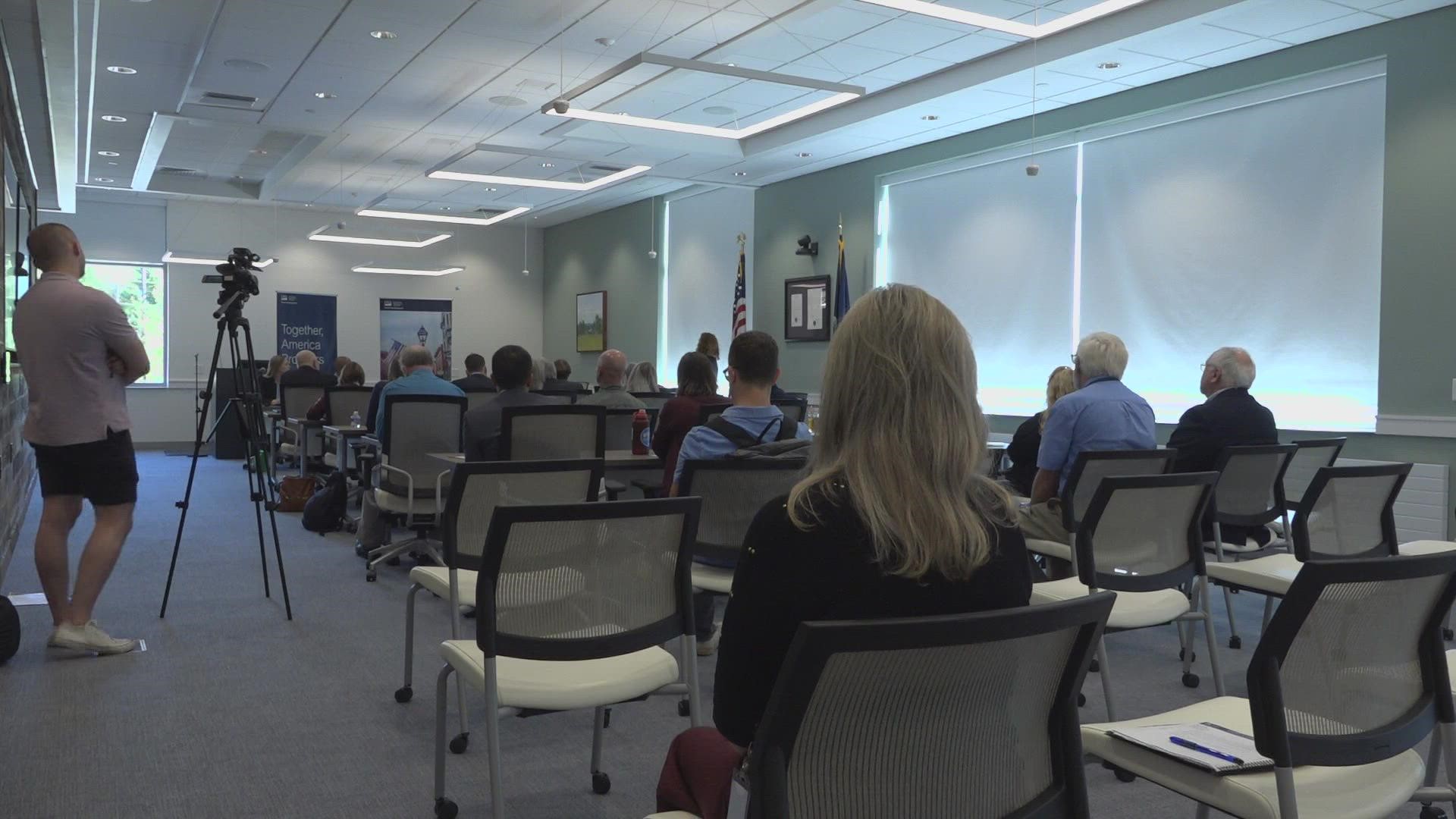AUGUSTA, Maine — The affordable housing crisis is still at the forefront of many Mainers' minds.
A shortage of available housing has made way for unusually high mortgages and rents. It's an issue that affects daily life and is hard to escape — and in a lot of ways, a solution is unclear.
On Wednesday, September 14, leaders at the local and federal levels met in Augusta for an affordable housing roundtable at the Maine State Housing Authority in Augusta.
Joaquin Altoro, administrator for the United States Department of Agriculture's (USDA) Rural Housing Service, was one of the primary speakers.
"It’s going to take bold moves by all of us to make sure that we can see change," Altoro said to the room, later acknowledging how he thinks the USDA itself can improve. "The first [step] is an internal look — pointing the finger back at us to say, 'Why are we not as organized? Why does it take [so] long to get things accomplished?'"
To kick off the meeting, the room celebrated the success of a local Bridgton resident who recently became a homeowner, thanks to a USDA loan.
Dan Churchill said he didn't even know that type of loan existed until a desperate internet search — but it has allowed him to give his twin boys a better, more stable life.
"The rental housing out there is slim — and if there is any, it’s not the best," Churchill said.
Altoro said one of his primary goals is making sure there's equity in Maine housing by prioritizing people like senior Mainers, culturally-diverse Mainers, and Mainers who live in more rural areas. He said it's also important that workers in Maine have a guaranteed place to live — and mentioned local employers should become involved in that conversation.
"When you safely and affordably house a community, it’s amazing how resilient they become," Altoro said.
Dan Brennan, the director of the Maine State Housing Authority, said he thinks the primary obstacle that our state is facing is a lack of housing units.
"We need more supply. The reason we’re in this crisis is that we don’t have enough housing stock, and when you don’t have enough housing stock, you have prices that rise," Brennan said.
He said labor and material shortages are slowing the process of building and renovating housing units in some cases. He said that's why Maine leaders are trying to get creative.
"It’s not just MaineHousing," Brennan said. "It’s the whole infrastructure of state government that is at work trying to address this issue of getting more people involved in the trades and getting more people interested in the types of trades that build housing."
Rhiannon Hampson is the Maine state director for USDA Rural Development. She said last year, their office gave out between 170 and 175 single-family loans.
This year, they have given out between 190 and 195. She said that represents the fact that more people want to leave rental properties and invest in their own space. She said it's important to make sure people want to—and can—stay here in Maine.
"We want to be welcoming. We need new thought processes. We need more tradespeople. We need teachers," Hampson said, later adding, "We don’t want to be losing people to spaces, simply because they cannot find safe affordable houses or apartments or shared living spaces."
You can read more about USDA Rural Development here.

